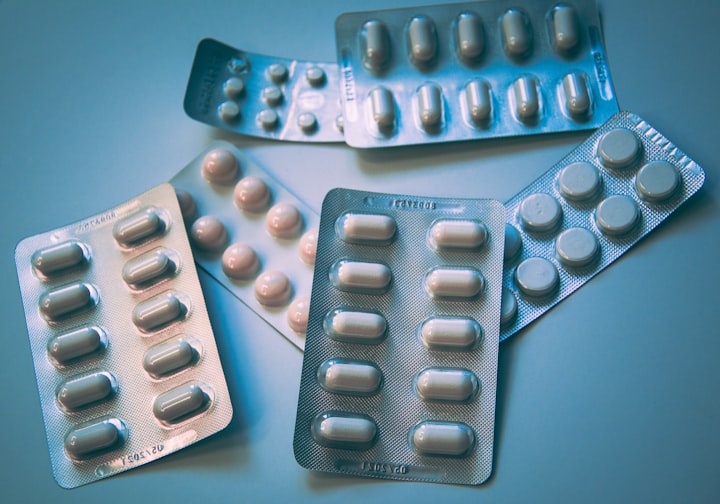
The placebo effect plays a critical role in medical research, especially during clinical trials. In a placebo-controlled trial, participants are randomly assigned to either receive the experimental treatment or a placebo, which appears identical but lacks any active ingredients. By comparing the responses between the two groups, researchers can determine the true efficacy of the treatment.
However, the placebo effect poses challenges in clinical trial design. If the placebo group experiences a substantial response, it can obscure the actual effects of the experimental treatment. To address this issue, researchers sometimes use "active placebos" - substances that mimic the side effects of the real treatment without having the intended therapeutic effect. This approach helps differentiate between the true effects of the drug and the placebo response.
Moreover, some conditions, such as chronic pain or depression, often exhibit high placebo responses, making it more challenging to demonstrate the superiority of new treatments over placebos. Understanding the underlying mechanisms of the placebo effect can aid researchers in refining trial methodologies, selecting appropriate control groups, and interpreting trial outcomes accurately.
The Psychoneurobiology of Placebo Responses
Studies in psychoneurobiology have shed light on the physiological processes associated with the placebo effect. Neuroimaging studies have revealed changes in brain activity, such as increased release of dopamine and endorphins, which contribute to pain relief and feelings of well-being. The brain's expectation and reward systems are heavily involved in mediating these responses.
Interestingly, the placebo effect can even elicit physical changes in the body. For example, in studies of patients with Parkinson's disease, placebo treatment led to increased dopamine release in the brain, resulting in temporary improvements in motor function. This highlights the mind-body connection and the remarkable potential of our thoughts and beliefs to influence our health.
Enhancing the Placebo Effect
Researchers are exploring ways to enhance the placebo effect for therapeutic purposes. One approach involves using "open-label placebos," where patients are informed that they are receiving a placebo, but still experience symptom relief. Surprisingly, this approach has shown promise in managing various conditions, such as irritable bowel syndrome (IBS) and chronic pain. The power of transparency and harnessing the patient's expectation can lead to substantial improvements, even without active treatments.
Integrating Placebo Responses into Patient Care
Recognizing the placebo effect's significance can inform healthcare providers on how to optimize patient care. Empathy, communication, and the quality of the patient-provider relationship can significantly impact a patient's expectations and, subsequently, their response to treatment. Open and honest discussions about treatment options, possible outcomes, and the role of placebo effects can foster trust and improve treatment adherence.
Moreover, harnessing the placebo effect can be particularly valuable in managing conditions with limited treatment options or in situations where conventional treatments have failed. Integrative medicine practices often leverage the power of the mind-body connection, combining traditional medical interventions with mindfulness, relaxation techniques, and other psychological interventions to enhance overall well-being and treatment outcomes.
The Ethics of Placebo Use
Ethical considerations surrounding the use of placebos revolve around the principles of autonomy, beneficence, and informed consent. In clinical practice, administering placebos without a patient's knowledge is generally considered unethical and violates the principle of informed consent. Patients have the right to be fully informed about their treatment options and actively participate in decisions regarding their care.
However, placebo treatments can be ethically used in clinical research settings with proper informed consent and transparent communication. Ethical guidelines dictate that researchers must fully disclose the possibility of receiving a placebo during a trial, ensuring that participants understand the nature of the study and the potential risks and benefits involved.
The placebo effect is a multifaceted phenomenon that highlights the interconnectedness of the mind and body. Understanding its mechanisms can lead to more effective clinical trial design, better treatment outcomes, and improved patient care. Ethical considerations are essential when incorporating placebos into medical research and practice, emphasizing the importance of transparency, informed consent, and patient empowerment. As the scientific community continues to investigate the placebo effect, we are bound to uncover more insights into the extraordinary potential of the mind's influence on our health and well-being.
About the Creator
Emma
I'm a passionate storyteller.With every word I put to paper, I aim to evoke emotions, stimulate thoughts, and take readers on a journey they won't soon forget. Stories have the power to connect people and offer them an escape from reality






Comments
There are no comments for this story
Be the first to respond and start the conversation.